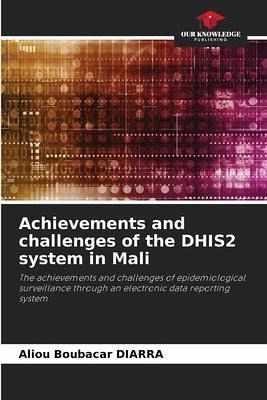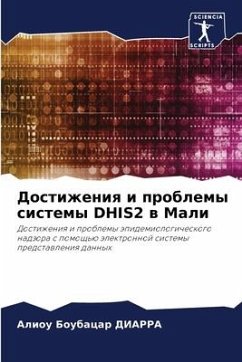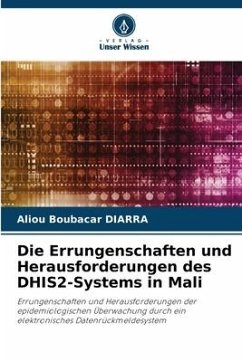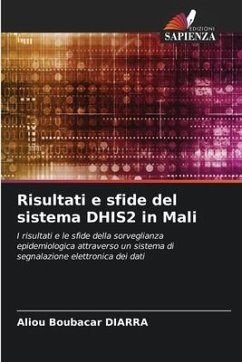
Achievements and challenges of the DHIS2 system in Mali
The achievements and challenges of epidemiological surveillance through an electronic data reporting system
Versandkostenfrei!
Versandfertig in 6-10 Tagen
29,99 €
inkl. MwSt.

PAYBACK Punkte
15 °P sammeln!
Epidemiological surveillance in Mali is functional at all levels of the health pyramid to facilitate the flow of information. In December 2013, an evaluation of the routine health information system commissioned by DNS was conducted with support from Measure Evaluation in Mali with funding from USAID. One of the recommendations of this evaluation was the migration of DESAM to the DHIS2 platform, which is used for epidemiological surveillance of OCDs, data entry, analysis of malaria/nutrition/RH data, and use of the data for evidence-based decision making. The strengths of the system are: rapid...
Epidemiological surveillance in Mali is functional at all levels of the health pyramid to facilitate the flow of information. In December 2013, an evaluation of the routine health information system commissioned by DNS was conducted with support from Measure Evaluation in Mali with funding from USAID. One of the recommendations of this evaluation was the migration of DESAM to the DHIS2 platform, which is used for epidemiological surveillance of OCDs, data entry, analysis of malaria/nutrition/RH data, and use of the data for evidence-based decision making. The strengths of the system are: rapid case detection, real-time data tracking and improved data completeness and timeliness. Sustainability of the system without partners remains a major challenge for the Ministry of Health as it does not allocate sufficient resources for scaling up.












